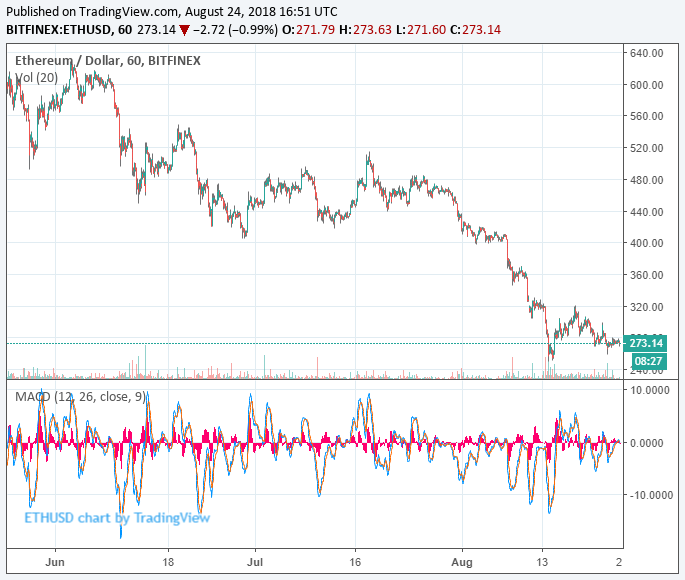An Ethereum ICO Investor is Moving Millions in ETH to Bitfinex

One of the first “ethereum whales” appears to be having second thoughts about the second-largest cryptocurrency’s prospects.
One of Ethereum’s First Whales is Funneling Millions to Bitfinex
That anonymous investor , who received more than 314,000 ETH from the network’s Genesis block as a result of their investments in the Ethereum initial coin offering (ICO), has this week funneled approximately 20,000 ETH to Bitfinex, worth approximately $5.5 million at the time of writing.

The development was first noted by California-based attorney Zoe Dolan, who has been monitoring wallets holding funds that originated in the Ethereum Genesis block for evidence of “capitulation.”
But while that 20,000 ETH may represent a small portion of the wallet’s initial balance, it’s not the first time that this unknown investor has moved a large amount of ether to Bitfinex. In May, the wallet funneled more than 116,000 ETH — worth ~$65 million at the time — out of the original wallet, and most of these funds appear to have eventually ended up at the exchange in a series of transactions made over the course of the next several months.

Moreover, those funds that have already been moved to Bitfinex this week (and presumably sold) may not represent the end of this early ETH user’s liquidation. The 20,000 ETH were originally moved as part of a transaction that included 93,750 ETH. The remaining funds from that transaction — approximately $18 million worth — are sitting in this wallet , which has historically been used primarily as a temporary holding cell for funds that eventually find their way to the cryptocurrency exchange.
The unknown investor’s original wallet, meanwhile, still holds more than 104,000 ETH, worth approximately $28 million.
ETH Whale Sells into Bear Market
The ethereum price, incidentally, has declined by more than 50 percent since this wallet first began moving its funds to Bitfinex, from an opening price of $573 on May 28 to about $275 today.

As CCN.com reported, some analysts had speculated that ICO-funded startups had made the cryptocurrency market decline more severe by panic-selling their ether, afraid of running out of funds.
However, this data suggests that long-term hodlers may also share a significant portion of the blame. While it’s not clear how much this individual user has impacted the market without observing their actual trading habits, there’s sufficient evidence that large orders can catalyze significant price swings in the spot markets.
That’s particularly true now that global trading volume has begun to dry up, a byproduct of the prolonged bear market. Ethereum has averaged about $1.5 billion in daily spot market trading volume over the past week, according to CoinMarketCap, down from about $5 billion at the beginning of the year.
Featured Image from Shutterstock